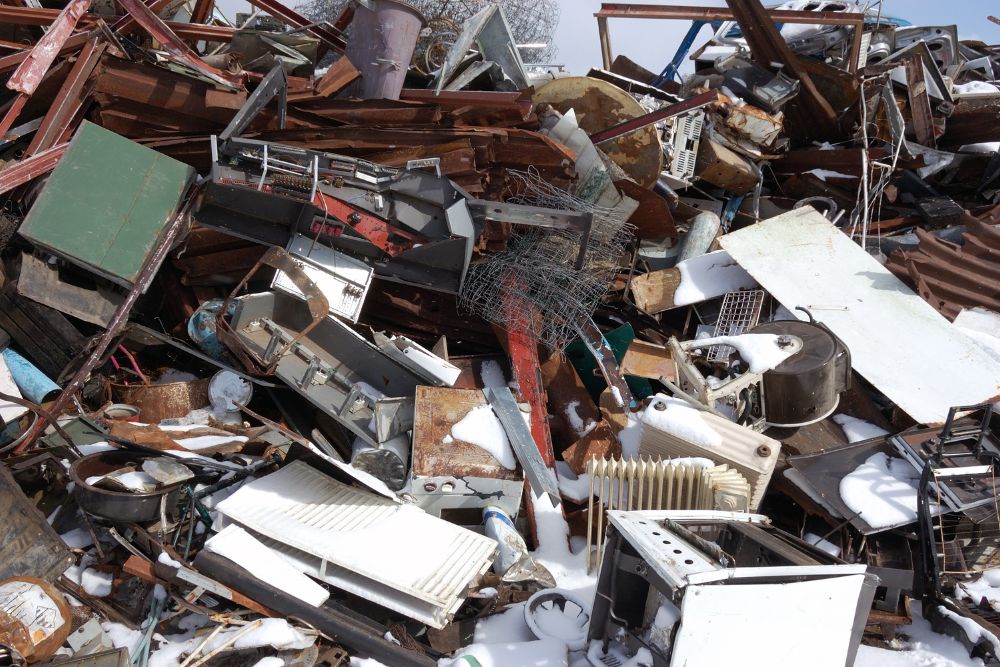Estate cleanouts often resemble an emotional odyssey as much as a physical task. They can emerge during seasons of transition—downsizing, moving into care facilities, or dealing with a loved one’s passing. Regularly scheduling estate cleanouts brings clarity to otherwise overwhelming spaces, helping unravel years of accumulation in deliberate and mindful stages.
A proactive approach to clearing an estate ensures belongings are managed with intention. Rather than allowing clutter to build, systematic, periodic cleanouts turn what might feel like mountainous chores into manageable tasks. You preserve both emotional energy and physical time by staying ahead of clutter, enabling softer transitions when big changes inevitably arrive.
Less Emotional Burden Through Routine Sorting
Infrequent cleanouts leave families buried under nostalgia and disorganization. Objects steeped in memory can halt progress and heighten stress. But when estate decluttering is done regularly, each session encourages thoughtful review rather than emotionally draining triage. Familiar items get revisited and sorted while memories remain fresh and decisions more peaceful.
Habitual cleanouts diffuse emotional overwhelm. Instead of facing a single, heavy session of decision fatigue, spreading the process across time lightens the cognitive load. Sorting at intervals gives room to reflect without fatigue, promoting healthier closure around possessions. This regularity fosters emotional resilience and helps maintain clarity as rooms evolve.
Clarity, Acceptance, and the Freedom to Move Forward
Over time, the steady practice of estate cleanouts transforms from a chore into a grounding ritual. What begins as a way to clear clutter gradually evolves into a rhythm of self-care and emotional clarity. The more frequently individuals engage with their spaces, the more attuned they become to what matters. This repeated process softens the edges of sentimentality, allowing for genuine reflection rather than reactive attachment. With each round of sorting, clarity sharpens—not just in what to keep, but in why those decisions matter.
As the home evolves, so too does the mindset of its occupants. Possessions that once held intense emotional charge may begin to feel lighter, easier to part with, or even unnecessary. The rooms shift from being static storage zones to flexible living environments. People begin to understand that keeping everything is not the same as preserving memories. Through the regular cadence of letting go, they unburden themselves while still cherishing what’s most meaningful.
Improved Physical Safety and Reduced Injuries
Estate cleanouts often involve navigating heavy furniture, electronics, and awkward boxes. When deferred for long periods, these environments can become trip hazards or strain-inducing piles. By cleaning out regularly, pathways stay clear and the biomechanical risk of lifting heavy or oddly shaped items is minimized over time.
Staying on top of accumulation means each removal is smaller and safer. Instead of hauling massive loads in one overwhelming session, steady maintenance lets helpers handle items with adequate rest and proper technique. This lowers the likelihood of injuries and helps maintain a safer environment throughout the estate.
Preventing Long-Term Strain and Supporting Physical Well-being
Finally, minimizing injuries isn’t just about lifting technique in the moment—it’s also about acknowledging the cumulative strain that estate cleanouts can have on the body over time. When these projects are postponed for years and then tackled all at once, what could have been a manageable task becomes a marathon of lifting, dragging, and bending. Days of nonstop physical exertion don’t just tax the muscles—they erode mental sharpness and decision-making. This exhaustion creates the perfect environment for slips, missteps, and preventable injuries to occur.

Breaking up the work into scheduled, routine sessions creates space for physical recovery and reduces the mental toll. When fatigue doesn’t cloud judgment, people are more likely to assess situations accurately, use tools correctly, and remain cautious while lifting or moving items. Tasks are handled with greater care, and the physical body is given adequate rest between efforts. These intervals help maintain not just energy but also focus, which is essential when navigating cluttered or tight environments.
Eco‑Friendly Disposal through Planned Donations and Recycling
When items build up over years, knowing what to recycle or donate becomes challenging. Regular estate cleanouts open up opportunities to separate reusable articles sooner. Clothing, books, or household goods can be redirected to charities promptly, rather than languishing until spoiled or obsolete.
Timely sorting allows more materials to be diverted from landfills. Electronics, metals, paper goods and textiles can be processed through recycling services in good condition. Planning periodic removal supports sustainable practices in an intentional way, ensuring usable goods reach new hands—and limiting environmental impact.
Sustained Property Value and Enhanced Market Readiness
If there’s ever an intention to sell or rent out property, an estate in moderate upkeep fares far better in valuation. Spaces that are maintained with recurring cleanout sessions appear more appealing, feel larger, and are perceived as better cared-for. Buyers or appraisers pick up on that sense of order and stewardship.
Rather than scrambling to ready a property under pressure, regular upkeep keeps the estate ever‑ready. Listing decisions can come with ease if the residence is already in a cleared and organized state. This positions the property to meet opportunities swiftly without last‑minute stress or compromise.
Streamlined Cost Control and Logistics
The expense of estate cleanouts can grow big when everything is handled at once. Hiring removal crews, dumpster rentals, transport, and disposal fees add up fast in a single surge. Spacing cleanouts across time lets cost be distributed more gradually, avoiding inflated lump‑sum invoices.
Smaller, recurring projects often qualify for bundled pricing or reduced fees from junk removal services. Logistics become simpler as crews work in stages, leading to fewer surprises. With advanced notice, professionals can plan routes, allocate trucks efficiently, and even overlap donation pickups, shaving both time and expenses.
Easier Identification of Valuables and Keepsakes
Allowing objects to stay hidden long term tends to bury heirlooms or valuables in forgotten corners. Estate cleanouts done at intervals bring items forward while memories are fresh. Keepsakes, documents or collectibles can be recognized and preserved in due course.
Frequent review helps avoid misplacement or damage to precious belongings. Family members have opportunities to examine items before sentimental value fades or before wear creeps in. This process ensures meaningful items are handled thoughtfully, without hurried or fraught decisions near the end of a transition.
Enhanced Mental Clarity and Sense of Control
Living amid clutter can impact mental wellbeing: visual chaos disrupts focus and heightens anxiety. Regularly clearing rooms promotes mental clarity and instills a sense of order in everyday life. The act of letting go, done gradually, rejuvenates both space and psyche.
Control over one’s environment fosters empowerment. Instead of passive accumulation, deliberate decision-making keeps possessions relevant and space purposeful. Living or working in a space that reflects intention supports calm, reduces cognitive load, and inspires clarity for future planning.
Flexibility in Planning Life Transitions
Estate cleanouts aren’t always reactive. Planned transitions—like selling a home, relocating, or shifting to assisted living—benefit greatly when groundwork has already been laid. Filling ancillary spaces with sorted and removed items reduces prep time later.
When items are regularly reviewed and pared down, estate transitions flow smoother. Move‑in day or listing day doesn’t arrive with a backlog of decisions. Instead, spaces feel settled and ready. That early groundwork provides flexibility to pivot when timelines shift, easing stress when life’s demands evolve.
Reduced Time to Final Completion
When time arrives to complete a full estate emptying, whether due to relocation or sale, regular maintenance dramatically shortens the finish line. Most items have already been sorted, removed, or distributed—and the remaining tasks become minor.
Rather than facing a marathon job, the final estate cleanout becomes a sprint. Truckloads are fewer, crews finish more quickly, and remaining cleaning tasks are minimal. That efficiency reduces disruption and helps wrap the estate process in days instead of weeks.
Consistent Record‑Keeping and Organization
Over time, estate inventories—whether from legal proceedings, estate sales, or moving plans—gain accuracy when maintained incrementally. Regular cleanouts help preserve documentation of item values, donations, or disposals as they happen.
This ongoing record‑keeping simplifies legal or financial clarity later. If appraisals or tax deductions are necessary, having a chronological log of disposal and donation events supports transparency. The estate remains better managed, with fewer surprises in audits or accounting.
Emotional Preparedness for Final Goodbyes
Handling loss or change in stages gives emotional space to breathe. Regular cleaning sessions avoid the collapse of feelings at the very end. Instead, each phase allows reflection, closure, and small goodbyes to possessions before the final sweep.
That gradual emotional release is gentler when decisions don’t pile up all at once. Parting with items as they naturally surface fosters acceptance. In this way, regular estate cleanouts help families process both space and sentiment in manageable increments, honoring memory without rushing grief.
Conclusion
Across the entire estate lifecycle—from accumulation to clearance—regular cleanouts offer more than mere debris removal. They enable emotional ease, safer environments, cost savings, sustainability, and maintainable control. Careful, staged decluttering transforms a potentially overwhelming task into manageable, even mindful progress.
For those in Ventura, CA seeking expert support, Mobile Dump Junk Removal delivers comprehensive estate clean‑out services with empathy and efficiency. If you’d like to schedule assistance or discuss how periodic cleanouts can simplify your transitions, contact the team at Mobile Dump Junk Removal in Ventura, CA via (805) 751‑3744 or email mobiledumpremoval@gmail.com
